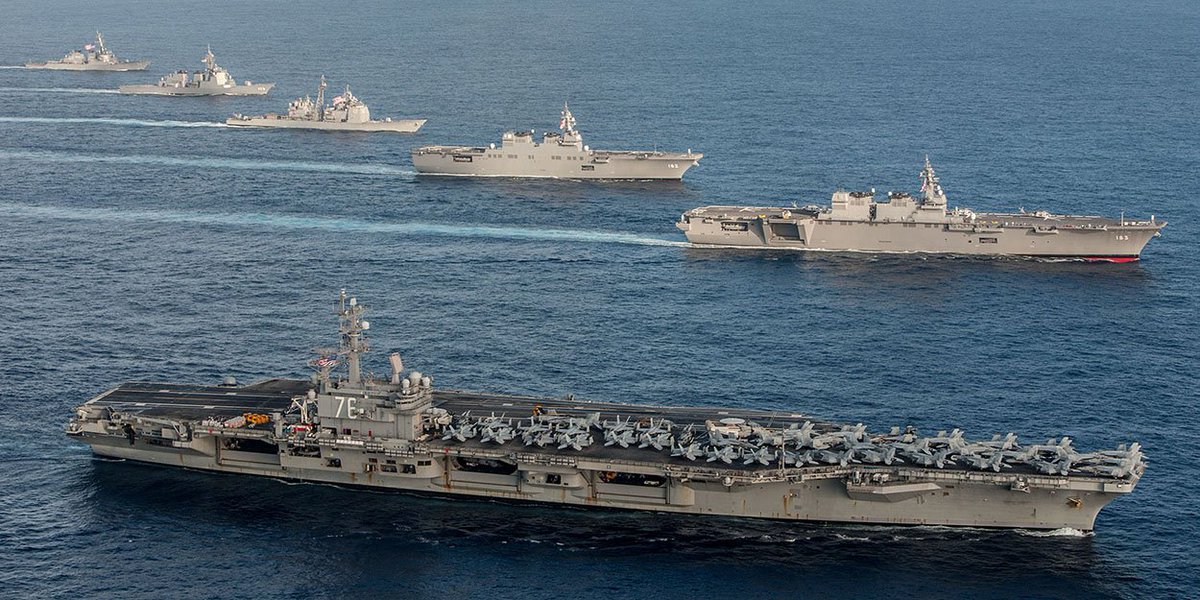The US has hosted the Proliferation Security Initiative (PSI), named Exercise Fortune Guard 22 from August 8-12, 2022, in Honolulu, Hawaii. This is a part of the PSI’s Asia-Pacific exercise Rotation series. There are 21 countries which have participated in this counter-proliferation activities.

What is PSI?
PSI is a voluntary multilateral effort initiated by the then U.S. President George W. Bush in May 2003. It was formulated to strengthen the nonproliferation architecture. The PSI is designed to prohibit and increase coordination between states to disrupt trade in weapons of mass destruction (WMD), their delivery systems, and related materials. Bush administration recognized in the 2002 National Strategy to Combat Weapons of Mass Destruction Proliferation, that there was a need to enhance the capabilities of military, intelligence, law communities to prevent the movement of WMD materials and technology to hostile states and terrorist organizations.
Fortune Guard 22 Exercise
The US hosting the Exercise Fortune Guard 22 which is a part of the Asia-Pacific Exercise Rotation series. It was inaugurated in 2014. There are 21 countries apart from US to address the full range of WMD destruction through counter-proliferation. It will be a government level decision level decision-making process. Chemical, biological, radiological, and nuclear response along with expert information exchange are the subject matter of discussions. Several live exercise demonstrations will be held as a part of interdiction capabilities.
The principles also include commitments to:
• Develop measures to interdict transfers of WMDs, and related materials and technologies of proliferation concern,
• Strengthen national legal authorities and frameworks for interdictions,
• Adopt procedures for sharing information with other states about suspected proliferation activities
• Support interdiction efforts, including by negotiating ship boarding consent agreements and stopping and searching suspected shipments in territorial waters and airspaces
Fortune Guard is the American contribution to the Asia-Pacific Exercise Rotation series. The Rotation Series which the United States inaugurated in 2014 have Australia, Japan, New Zealand, South Korea, Singapore and the United States as the hosts. They commit to rotate hosting the yearly exercises focused on the Asia-Pacific region under the names of Pacific Protector, Pacific Shield, Maru, Deep Sabre, and Eastern Endeavor respectively.
Success and Drawbacks
Several claims have been made about the success of the PSI. It is argued to be based on practical actions that make maximum use of each country’s strengths to counter proliferation. Cooperation between the countries on PSI grew in strength which created a lasting basis for counter-action against WMD. The US argued that the administration made the PSI a key foreign policy and that a considerable amount of budget is approved each year to help states support the initiative.
There has been several claimed successful intercepts by the PSI. Among them there were two prevented WMD-related deliveries to North Korea and the transfer of ballistic missile-related and nuclear program-related materials to Iran. There are also official statements that more than 80 nations participated in this endeavor.
But gradually the meetings of these PSI were held behind closed doors and very little information were made public. The PSI has been criticized for lack of transparency and public accountability as such. Its operations are accused of stretching the principles of international law, impeding legal trade, weakening the UN system, being politically divisive, diluting other nonproliferation efforts. The PSI have also been under criticism of having limited effectiveness. The statistics on how many countries actually participates in this are allegedly debatable as well. Critics argued that the PSI lacks legal foundation and also stresses on dialogue as the best means for nonproliferation and not force.

